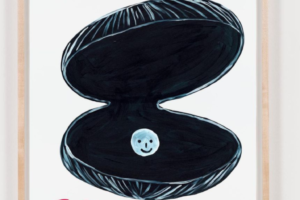Today, we’re going to consider whether the first time that you wake up to the excruciating intensity of unrequited limerent love is always the worst. In short, the answer is no; the implications of this are extremely positive when you learn how to psychologically immunise yourself to limerence, but negative for those who are still emotionally reactive and falsely believing that limerence ‘happens to them’ and is ‘out of their control’ (fortunately, the fact that you are looking for answers indicates that you are in the former group). Soon all will be clear – let’s get down to business!
What Is Unique About The First Limerent Experience?
Before I reveal precisely why many serial limerents who write to me are experiencing their worst episode so far in their 40s, 50s or 60s, I must concede that several components of your first ride with limerence do make it different to subsequent experiences.
Many people like to conceptualize this through a purely neurochemical lens, discussing how the first prolonged exposure to the intermittent release of neurotransmitters like dopamine, noradrenaline and oxytocin in response to an ‘elusive love interest’ is bound to elicit a stronger response. If we reduced the emergent neural phenomena that we call ’emotions’ to pure ligand-receptor interactions in this way, we could compare your first limerent episode to the first time someone genetically-able to get a buzz from coffee has a double-shot espresso.
Neurochemistry Cannot Explain All; We Need Psychology
As a neuroscientist, I am, of course, partial to studying these states very objectively. And, this pharmacological perspective does serve to conclusively and (almost) entirely explain many strong experiences that we are capable of. I remember downing an entire mug of black coffee at age 13, only to be plunged into the most curious state of combined euphoria, hyperfocus, motivation and talkativeness for the first time. It is certainly true that I no longer experience anything like that wonderful-but-unsustainable stimulant high now, because my brain has habituated through rewiring itself and changing dopamine receptor expression etc.
But, how does a dose of difficult love compare to a cup of liquid psychomotor stimulant? Do we habituate to romantic desire in the same way, meaning that we are (fortunately) always guaranteed less traumatic limerent episodes if we can glide through the first one on autopilot?
Absolutely not. Our brains do get used to the cascades that underpin mutual romantic love to a certain degree, in the sense that the first time that you float through life knowing that you and your new lover are meeting later for coffee may be the most “magical”, by virtue of the fact that you have never accessed the realm of real romance before. You have never been so vulnerable and had it pay off before, receiving love back; for this reason, most people’s first real relationships do inundate them with memories of a very special and innocent time, when they most probably believed that having earned their mutual love experience would guarantee them a lifetime with that person (rarely the case, but also rarely what you really would desire now!).
Subsequent real relationships can and will also be, I will add, beautiful, stimulating and magical; I am only referring to the sprinkle of pure innocence that invariably peppers your first mutual romantic bond which is not typically re-experienced. This is nothing to lament, because most people find their future relationships far more satisfying, real and well-matched to them. In fact, it’s something to celebrate – there is something incredibly potent about learning that you can feel intensely about someone, see them as an angel, and then see your pahts birfurcate and later not even care about it. Talk about emotional and spiritual growth!

Now, we must consider to what extent this applies to limerence. If someone has never experienced any hints of romantic reciprocation in their life due to problematic belief systems and the first time that they ‘fall in love’ is, unfortunately, a one-sided expression of intensity, then this will, naturally, exacerbate the delusionality of the episode. Not only will they be dealing with limerence, which, as you will soon grasp, has the potential to be as devastating as a free-running forest fire at any age, but they will also be fighting the issue of their first limerent object (LO) being the first person who triggers tenderness in them.
But, what about someone who has fallen in love healthily and normally a few times, only to start experiencing limerent episodes due to unmet needs, detrimental belief systems and the subconscious desire for a wild life chapter?
The Most Explosive Episode Rarely Is The First
The uncomfortable truth is that their first limerent episode will not necessarily be any more damaging to their mental health or last longer than future ones. In other words, unless they fix the true root causes of limerence (all is explained and covered in my book The Limerent Mind, which is currently on sale), they’re going to be vulnerable to falling into a state of hyperfocus on another mere human’s view of them.
Sure, the first limerent stint has you in the compromised position of not knowing that these feelings do pass when you take action, and that the person who your world seems to currently revolve around will soon become someone you deem less important and less interesting than casual friends of yours. Realizing that you are not only capable of overcoming individual LOs but that it is an inevitable part of the ebb and flow of the experience (they can’t be fascinating forever, just like no drug can make you euphoric forever) is inspiring and fills you with hope.
But, that internal, wise “knowing” that you have shaken off limerence before is not enough to stop your second, or, indeed your fifth, limerent episode from being the most destructive – the one that pushes you headfirst into sheer depressive obsessionality and drives you to distance yourself from your hobbies and friends. To wrap up this article, I’m going to elucidate why this is. Hint: if you have been reading my content for a while, this may not surprise you!
Limerence Is Simply A Reflection of Your Psychological Issues
We saw the (lovely, neat and exciting) neurobiochemical view of limerence severity above, when I spoke of signalling molecules unleashing themselves on their various receptors all over your brain and making you feel crazy. However, we cannot solely study limerence in that way – to ignore the fact that psychological factors are the very components that drive and influence your responses to romantic partners would be scientifically untenable.
You may realize that limerence is always the impartial mirror image of internal points of weakness (psychological needs that you have neglected/didn’t know you had, unhealed trauma, belief systems about yourself and the world that truly limit you). Logically, it makes sense, despite being hard pill to swallow when you have dealt with it for years; only a small proportion of the population can become limerent, and it is a pathological expression of love that does not serve you.
How does this relate back to the concept of your first limerent episode rarely being the worst? Because limerence is not simply an experience of your brain being washed by a cocktail of love-promoting neurochemicals. It is you getting addicted to someone whose personality, aura and way of communicating with you (typically intermittently and unsatisfyingly, leaving you wanting more) resonates with you on an energetic level. Down where you currently are, vibrationally-speaking, this man, woman or genderqueer individual seems daring, confident, ruthless, commanding, exciting, brave, flirtatious, expressive and/or just downright fascinating.
You Can Experience Limerence At Age But Also Rapidly Cure It At Any Age
The true reason why limerence can hit you like a tonne of bricks and temporarily derail you at any age is because you can have psychological areas of weakness at any age. Your brain does not know whether you are 23 or 75 years old – it simply wants you to feel good and to re-join the beautiful dance of life. Looking for shortcuts, it gets you to imprint on anyone who seems capable of offering experiences, conversations or mere concepts that will complement the unhealed points of your own psyche and give you some euphoria.
Now, I want to stress this immensely; the emotions of limerence are intense, but you are never, ever too far gone to recover. As I break down methodically in my book, recovery is simple and guaranteed once you commit to just tweaking certain areas of your attitude and mentality towards life. This will require you thinking a little differently and approaching this systematically (driven by the exciting goal of emotional freedom) rather than slipping into emotional reactivity, but is achievable for absolutely every single one of you.
Really feel that nugget-sized piece of truth – let it wash over you with warmth. You, and I mean you, will never experience painful unrequited love again if you transform your self-concept and your mentality, because you will no longer be an energetic match for it. It will frankly be impossible for you to a). slip into the state in the first place and b). feel that a LO is so dangerously addictive that you continue reacting and monitoring their treatment of you for months/years.
Once this shift is achieved and your subconscious mind has assimilated new beliefs, limerence becomes a thing of the past (that you will laugh about, and, knowing the truth, try and help others overcome). Ta da, you now have one less problem on your plate!



Recent Comments